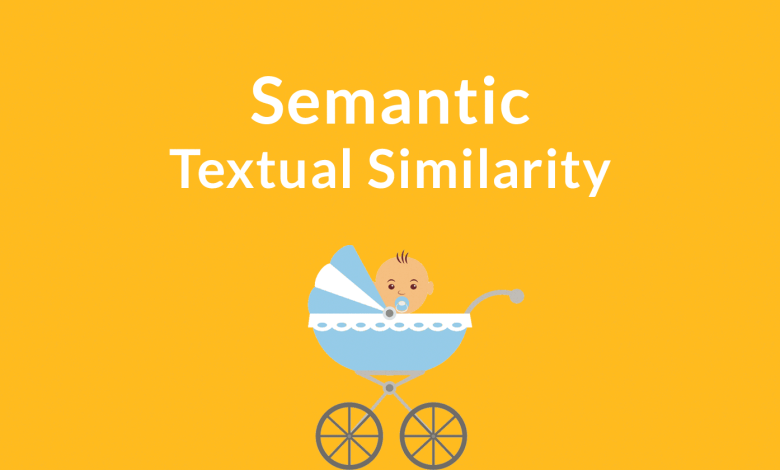
Google has recently introduced two new algorithms focused on natural language processing, one of which sets a new benchmark in understanding how to answer questions. Google’s ultimate goal is to turn search into a computer that comprehends and responds to questions like a human. According to Google, these algorithms are just the starting point.
Google’s Research and Implementation
It is crucial to remember Google’s standard stance on research papers and patents, which can be summarized as: "Just because Google publishes a research paper or patent does not mean that Google is actually using it."
Understanding Questions by Their Answers
The first algorithm is titled "Learning Semantic Textual Similarity from Conversations." This algorithm learns to grasp questions by studying responses to infer the real meanings behind the questions. Google explains:
"The intuition is that sentences are semantically similar if they have a similar distribution of responses. For instance, ‘How old are you?’ and ‘What is your age?’ are both questions about age, which can be answered by similar responses like ‘I am 20 years old.’ In contrast, although ‘How are you?’ and ‘How old are you?’ contain almost identical words, they have very different meanings and lead to different responses."
This algorithm is trained using conversational nuances sourced from Reddit and other platforms to understand the meanings of questions through actual conversations. Identifying similarities between long questions is more straightforward, but the research claims success in distinguishing differences in short questions.
According to the researchers:
"This paper presents a response prediction model that learns a sentence encoder from conversations. We demonstrate that the encoder learned from input-response pairs performs well on sentence-level semantic textual similarity. The basic conversation model trained on Reddit conversations competes with existing sentence-level encoders on public STS tasks. A multitask model trained on Reddit and SNLI classification achieves state-of-the-art performance for sentence encoding based models on the STS Benchmark task."
Potential Applications of the Algorithm
Nuance: A previous research paper on a related topic, not published by Google, provides insight into how such algorithms could be used in real-world applications:
"Sentence similarity measures are becoming increasingly important in text-related research and application areas such as text mining, information extraction, automatic question-answering…"
Google’s research paper does not specify how the algorithm could be applied, but a post on their AI Blog about these algorithms, mentions that they allow for building useful text classifiers with as few as 100 labeled examples, which means understanding more with less data compared to the past.
Insights from Bill Slawski
Nuance: Bill Slawski, a Google patent expert, commented on this algorithm:
"I wrote about a continuation patent from Google regarding ‘People Also Ask’ questions. The interesting aspect of this updated patent was the introduction of a ‘question graph’ for questions that Google might gather answers for. Google mentioned in at least one patent that they would create datastores of natural language questions and answers. Approaching the identification of questions differently adds the potential to create a larger and possibly superior question graph."
Importance of These Algorithms
Google aims to create an AI similar to the Star Trek computer, a goal evident since at least 2013. An article from that year highlighted Google’s aspiration to construct the Star Trek computer. Here is a key quote from that piece:
"A few weeks ago, I was speaking with Tamar Yehoshua, director of product management on Google’s search. I asked, ‘Is there a roadmap for search in a few years?’ She responded with a smile, ‘Our vision is the Star Trek computer: You can talk to it—it understands you, and it can have a conversation with you.’"
The inspiration from the Star Trek computer is evident in Google’s voice assistant, initially named after the actress who voiced the Star Trek computer. In the fictional universe, saying "Computer" prompts responses, whereas we say "Ok Google" to activate Google’s voice assistant.
These algorithms contribute to Google’s goal of mimicking the Star Trek computer, with potential uses extending beyond simple question-answering capabilities.
Similarities Between Star Trek and Google Voice Assistant
In the Star Trek universe, interacting with a computer involves speaking a trigger word and asking a question:
In the Star Trek World:
KIRK: Computer. This is Admiral James T. Kirk requesting security access.
COMPUTER VOICE: Destruct Sequence is activated.
In the Real World:
YOU: Ok Google, what is a good restaurant to eat at in Madrid at an affordable price?
Google Voice Assistant: The best cheap eats in Madrid are…
The AI First Paradigm: Is Google Alone?
No. It’s widely known that several technology companies are striving to adopt an AI-first approach. Qi Li, Baidu’s COO, acknowledged this trend in his statement when stepping down:
"I’m honored to have participated in Baidu’s transition to an AI-first company,” Lu said. Microsoft and Google, among others, have similarly aimed to refocus on AI.
Even Zillow is reportedly shifting from a search engine to an AI assistant model. A recent Mashable article quoted Zillow on AI:
"Currently, the site is undergoing what Wacksman describes as ‘the evolution from a search box to an assistant.’ The goal is to transform Zillow from a simple real-estate search engine into a tool that understands you."
Takeaway: The Role of Site Publishers in the AI Assistant Paradigm
These technologies remain in their early stages.
According to Google:
"We believe that what we’re showing here is just the beginning, and there remain important research problems, such as extending these techniques to more languages…"
Google also acknowledges that these technologies are not yet capable of understanding text at the paragraph and document level, representing future challenges in transitioning to an AI assistant.
It’s critical to stay informed about these advancements, as they will eventually indicate how publishers and merchants fit into this new world. This includes keeping track of developments in Schema.org Structured Data requirements as outlined by Google.


